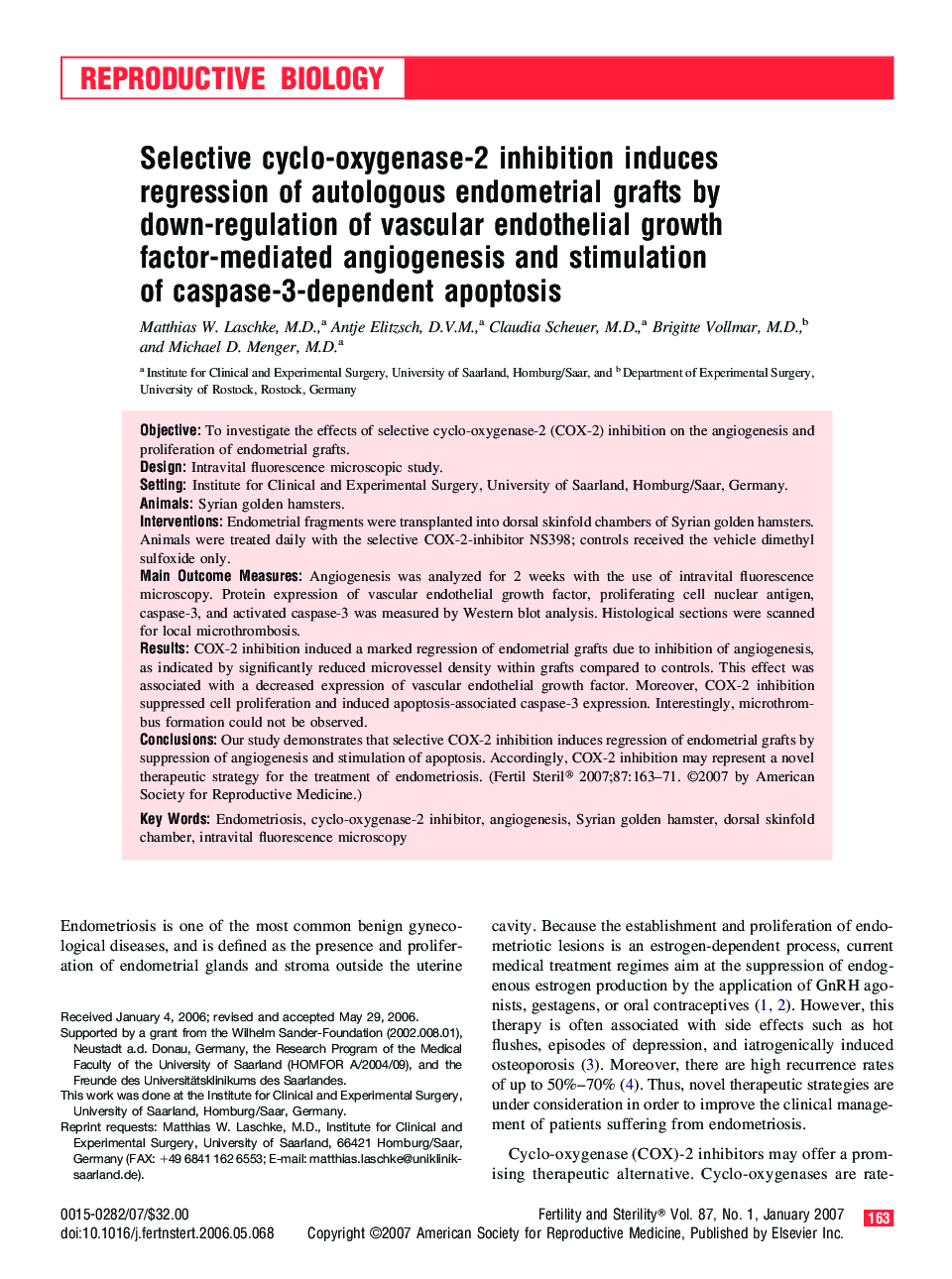| Article ID | Journal | Published Year | Pages | File Type |
|---|---|---|---|---|
| 3940429 | Fertility and Sterility | 2007 | 9 Pages |
ObjectiveTo investigate the effects of selective cyclo-oxygenase-2 (COX-2) inhibition on the angiogenesis and proliferation of endometrial grafts.DesignIntravital fluorescence microscopic study.SettingInstitute for Clinical and Experimental Surgery, University of Saarland, Homburg/Saar, Germany.AnimalsSyrian golden hamsters.InterventionsEndometrial fragments were transplanted into dorsal skinfold chambers of Syrian golden hamsters. Animals were treated daily with the selective COX-2-inhibitor NS398; controls received the vehicle dimethyl sulfoxide only.Main Outcome MeasuresAngiogenesis was analyzed for 2 weeks with the use of intravital fluorescence microscopy. Protein expression of vascular endothelial growth factor, proliferating cell nuclear antigen, caspase-3, and activated caspase-3 was measured by Western blot analysis. Histological sections were scanned for local microthrombosis.ResultsCOX-2 inhibition induced a marked regression of endometrial grafts due to inhibition of angiogenesis, as indicated by significantly reduced microvessel density within grafts compared to controls. This effect was associated with a decreased expression of vascular endothelial growth factor. Moreover, COX-2 inhibition suppressed cell proliferation and induced apoptosis-associated caspase-3 expression. Interestingly, microthrombus formation could not be observed.ConclusionsOur study demonstrates that selective COX-2 inhibition induces regression of endometrial grafts by suppression of angiogenesis and stimulation of apoptosis. Accordingly, COX-2 inhibition may represent a novel therapeutic strategy for the treatment of endometriosis.
